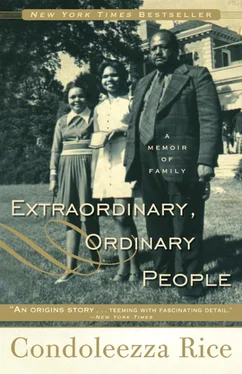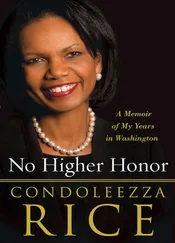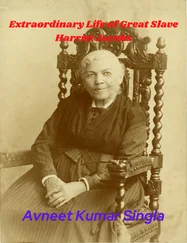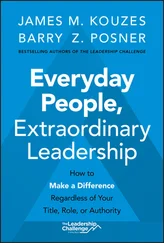My parents’ marriage created one other complication. The school system had a rule that barred spouses from teaching at the same place. Daddy left the Fairfield system and got a job as a guidance counselor at Ullman High School in the Birmingham school district. Mother stayed at Fairfield. I once asked Daddy how they had made that decision at a time when the woman would have been expected to give up her job, not the man. He simply said that Mother had been there longer and it was only fair that he move. I still think that it was a very enlightened decision for that era.
My parents planned to stay in the back of the church because there wasn’t really enough money to move. But Daddy convinced the congregation to paint the bedroom and bath, and Mother bought stuffed animals and a baby book to record every important event.
Tragically, these happy preparations were interrupted by the sudden death of Granddaddy Rice. Daddy and Alto had just made one of their periodic visits to my grandparents in Mississippi, and right when they returned home, Daddy received a phone call from his mother. Granddaddy Rice had suffered a heart attack. They got back in the car and raced to Mississippi.
When they arrived, Granddaddy Rice was already dead, but my grandmother had been too shocked to do anything with the body, which was still lying on the floor. My father and uncle arranged to have Granddaddy’s body brought back to Birmingham. A grand funeral was held for this exceptional man at Westminster Presbyterian, the last congregation that he had founded. My mother, seven months pregnant, played the organ, and my father officiated. The church was packed with people who had come from as far away as Louisiana.
My grandfather had been a giant in so many people’s lives and in our family lore. He managed to get his college education and to educate his own children and many others as well. He never let anything get in the way of providing an intellectual environment for his family or pursuing the development of his own mind. My father told me a story that seemed to sum up my grandfather’s passion for learning. One day Granddaddy Rice came home very excited about a new purchase. It was during the Great Depression, and my grandmother was trying hard to manage on their meager resources. Yet there was Granddaddy with nine leather-bound, gold-embossed books: the works of Hugo, Shakespeare, Balzac, and others. Each book began with a summary essay about the author and his work. My grandmother asked how much they had cost. Granddaddy Rice admitted they cost ninety dollars but told her not to worry because he had purchased them on time—they would only have to pay three dollars a month for the next three years . Grandmother was furious, but Granddaddy held his ground and refused to return the books. I am so grateful that he did not give in. One of the proudest days of my life was when my father gave me the surviving five volumes as I left for the ceremony to receive my PhD.
Granddaddy Rice died on September 14, precisely two months before I was born. I am told that he was thrilled when my mother became pregnant, saying that it would be really nice to have a child around the house. I deeply regret that I never knew him in the flesh, but I’ve always felt that I do know him in spirit. He has been a powerful guiding presence throughout my life. And I have those books: my bond with him. It is as if through them he has passed on to me the gift of transformation through education that he himself earned in the hardest of times and against very long odds.
My mother and father plunged into parenthood with a vengeance. Early on they sought to build a good learning environment for me, reading stories to me every night until I was able to read myself. My mother was as determined to raise a musician as my father was to cultivate a sports fan. She bought my first piano when I was three months old, and I learned later that we would “play” songs together, Mother moving my fingers along the little keyboard.
Before I was one my mother returned to teaching. There weren’t any debates in my community about the relative merits of rearing children while working. Almost all of the women in my community worked, most as teachers. Teaching was such a prized profession that most who could teach did. There weren’t many other options except perhaps nursing. Most men did the same, though occasionally they went to law or medical school.
Extended families provided a good child care alternative for these working parents. It was convenient that the length of the school day as well as vacations were roughly the same for parents who worked in the schools and for their children. But often grandparents filled in with kids who weren’t yet school-age. I was dropped off by my parents at my maternal grandparents’ house in the morning and picked up after school. There was no safer or more nurturing environment than the one provided by Grandmother and Granddaddy Ray.
When I was almost four, my father persuaded the church to build a proper manse so that we could move out of Westminster. I have only a few memories of living in the back of the church, but I remember very well the whole process of building the small gray house on a corner lot at 929 Center Way Southwest. The manse was located about five minutes from the church in Birmingham’s black middle-class neighborhood of Titusville.
My parents tried to involve me in family decision making from a very young age, and the impending family move was a perfect opportunity. There were so many decisions to make about paint colors and the functions that would be assigned to various rooms. I personally picked the pale green for the bathroom, the yellow for the kitchen, and a rich blue for my playroom. Mother decided on “Chinese red” for the living room. Since I was an only child and had no competition from siblings for space, I had a pink bedroom in addition to the playroom. But I was afraid to sleep in it alone, having shared the bedroom in the church with my parents. My bedroom was soon turned into a small den and a second bed was put in my parents’ room. This was the arrangement for a few years until at about eight I declared the need for my own space and reclaimed my bedroom.
But then there was the question of what to do for a den. Again here was an opportunity to involve me in decision making. By now I was president of the family. We held an election every year. My father insisted on a secret ballot, but since my mother always voted for me I was assured of victory. There were no term limits. My responsibilities included calling family meetings to decide matters such as departure times for trips, plans for decorating the house at Christmas, and other issues related to daily life. So I called a meeting, and after some discussion we all agreed that the playroom should become the den.
The move to 929 Center Way had been one of the most exciting times in our lives and included the family’s first TV purchase, a little thirteen-inch Zenith black-and-white set. We watched a lot of TV. I have many intellectual friends who either don’t watch TV or pretend that they don’t. Some go so far as to refuse to own one. And I know that parents today restrict television watching for their kids.
My parents didn’t set limits on how much TV I watched. To be fair, television was a lot more wholesome in the late 1950s. But there was more to it than that. I have always thought that it’s harder to be the parent of an only child than to be an only child. Someone has to entertain the little one when night falls and playmates go home. In that regard, television was one of my parents’ best friends. We watched TV together just about every night, and I often watched alone too.
The only black people regularly on TV were the characters on Amos ’n’ Andy , and while we watched their antics, my parents went out of their way to point out and correct their butchered English. Mostly I watched cartoons such as Popeye and situation comedies such as I Love Lucy. The Popeye Show took place in a studio with Cousin Cliff, a big white man in a sailor suit, hosting an audience of schoolkids. Sometimes kids would bring their friends and celebrate a birthday on TV. The studio audience was all white, of course, until about 1962, when the show started devoting a few days each year to “Negro day.” I actually got to go when I was about seven years old and one of my friends had her birthday party there. I remember finding the whole highly anticipated event rather disappointing. We drove up to Red Mountain, where Channel 13 was located, sat on bleachers in a studio, and went home. I never again held Cousin Cliff in high esteem.
Читать дальше












